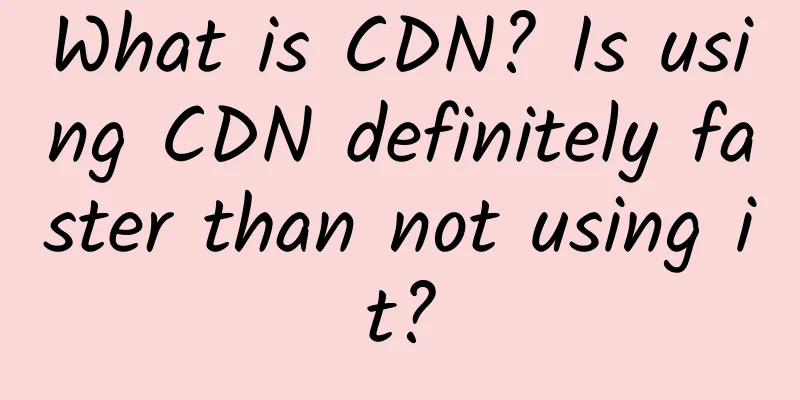Let’s talk about 5G cloud dedicated line, do you understand?

|
A few days ago, I read an article about a certain Internet giant's 5G cloud dedicated line (link at the end of the article). Combined with the previously hotly discussed state-owned cloud incident, I had some new thoughts. Through this article, I would like to share and discuss with you. Let’s start with the title of today’s article. 5G, cloud, and dedicated line are three separate words. As a communications person, everyone should understand them (dedicated line may be a little unfamiliar). However, after putting them together, I guess many people are confused. What is "5G cloud dedicated line"? 5G cloud dedicated line is essentially a dedicated line, that is, Direct Connect. As we all know, this is the Internet age and companies need to be online at any time. There are many ways for enterprises to access the Internet. Small and micro enterprises like our Xianzao Classroom usually apply for a fiber broadband to access the Internet, just like ordinary households. This method is cheap and generally sufficient. For large and medium-sized enterprises, applying for broadband is not very suitable. On the one hand, there are too many people in the company and the bandwidth is not enough. On the other hand, large enterprises have complex IT systems such as personnel and finance, and they have many headquarters, branches, and offices. Therefore, they need to build a wide area network and need a more stable, secure, and reliable Internet access. WAN Therefore, there is a demand for "dedicated lines". To put it simply, the operator will specially pull a line, connecting one end to your company's office and the other end to the operator's own transmission backbone network. MPLS dedicated line is the traditional mainstream dedicated line. This type of dedicated line has very good network quality, including fast speed, low latency, low jitter, and less packet loss. However, it is very expensive, slow to install, and difficult to maintain. In recent years, SD-WAN has emerged and started to take away the jobs of MPLS. It is difficult to explain SD-WAN in a few words. If you are interested, you can read here: What is the popular SD-WAN? SD-WAN, to put it simply, is a centrally managed "flexible wide area network" Let’s continue. So, what is cloud dedicated line? It's very simple. Now many companies' systems are on the cloud and deployed in cloud computing centers. So, if our enterprises want to access these systems, isn't it faster to set up a dedicated line from the enterprise to the cloud center? This exclusive connection channel between the user's enterprise local data center, office network and the cloud service provider's virtual private cloud (VPC) is called a cloud dedicated line. Cloud Private Line There is no doubt that this type of cloud dedicated line does not pass through the public network, the link is exclusive, and it has the advantages of security, high speed, low latency, stability and reliability. Let’s move on to the key point. What is “5G cloud dedicated line”? Obviously, the cloud dedicated line in the above picture adopts technologies related to 5G access network, bearer network, and core network. 5G is used to carry data between enterprises and clouds. Let me introduce the specific details, taking the article I saw as an example. Images from Gong Xiaobing of the Communication Network and Tencent Cloud Overall, this cloud vendor (well, it’s Tencent Cloud, I won’t pretend) has achieved end-to-end QoS and traffic diversion based on the operator’s 5G network. On the wireless side, Tencent Cloud's own console is used to order the air interface GBR (minimum bit rate promised by the system). In other words, it provides an air interface speed guarantee. In the bearer network, QoS level is also promised to provide a transmission quality guarantee. There is a big difference in the core network. Traditionally, data is sent through the core network's media plane element (UPF) to the operator's backbone network, to the Internet (public network), and then to Tencent Cloud's data center. As for Tencent Cloud's 5G cloud dedicated line solution, after the UPF was released, it directly entered Tencent's network (TSAC in the figure is Tencent's edge access and acceleration platform) and entered Tencent Cloud's data center. Tencent Cloud directly dispatches the operator's core network through OSS (business support system) to achieve the air interface rate guarantee and UPF diversion mentioned earlier. Images from Gong Xiaobing of the Communication Network and Tencent Cloud This is indeed a business model that shocks me. The reason for the shock is that operators actually allow cloud vendors to exercise such bold "control" over their own networks. If it is the operator's own cloud business, I can fully understand it. The problem is that this is the cloud of a private Internet company. Are operators really willing to open it up like this? As we all know, in recent years, operators have been advocating "cloud-network integration". The first typical exploration of "cloud-network integration" is to launch edge computing and sink cloud (computing) to the bottom layer of the network. The second typical exploration is the cloudification of the core network, or even the public cloudification, which is to directly migrate the telecom cloud to the public cloud. The 5G cloud dedicated line we have been discussing just now is actually a more "thorough" cloud-network integration - using the cloud to dispatch the network, and using the network to cooperate with the cloud. In the 5G cloud dedicated line model, the performance advantages of 5G have been brought into play to a great extent. However, from the perspective of the network (operator), this cooperation is obviously very passive. The pipeline attributes of the network (operator) have become more obvious. Of course, from another perspective, with the help of 5G cloud dedicated line services, operators can indeed better carry out "5G private network" services. After all, although the cloud is owned by Internet giants, at least the network is theirs. Enterprise customers can get some money for using the network, and cloud vendors will definitely get some money too. However, whether the operator can access the user's data and intervene in the user's business is the key to making big money. Otherwise, there is no difference between 5G cloud dedicated lines and MPLS dedicated lines. The cloud business of operators will not be able to take off. The trend of operators becoming pipelines will not change. Isn't it? Well, the above is a brief sharing about 5G cloud dedicated line services. As the owner and operator of the network, how operators should compete with cloud vendors is a hot topic worth observing for a long time. The outcome of this game directly determines the future pattern of the communications industry. From the perspective of a communications person, I hope that cloud-network integration can explore more paths that are beneficial to the network side, and bring a little hope to our increasingly declining communications industry. |
<<: Cisco pledges to be carbon neutral by 2040
Recommend
Huawei obtains the world's first PUE test certificate for micro-module products
The 4th Data Center Infrastructure Summit was suc...
These 11 must-have practical software for network engineers, don’t say Lao Yang is keeping it secret and not telling you
What useful software do network engineers usually...
NFV is stumbling forward and entering the second half
The first half of NFV was a bumpy road, and it wa...
5G development is gradually spreading like wildfire, and China is expected to take the lead
5G is a new generation of communication technolog...
Modernizing Configuration Management to Address Network Complexity
The expansion of network infrastructure to multip...
How do terminals in a LAN access the external network? The answer is at the end
[[357957]] 0. Fans Questions Fans asked: "Ho...
Learn RTMP and RTSP streaming protocols in seconds
RTMP and RTSP are two common streaming protocols....
China's 5G user numbers exceed 100 million, three major operators announce June results
[[334500]] Recently, China Mobile, China Unicom a...
CloudCone: $16.3/year-1GB/55GB/3TB@1Gbps/Los Angeles data center
CloudCone has released several Easter packages, w...
[11.11] Hostons: AMD Ryzen+NVMe series VPS 50% off starting at $2/month, multiple data centers in Los Angeles/Salt Lake City/Portland, etc.
Hosteons also launched a Double 11 event, offerin...
From entry to mastery: Application and best practices of Ansible Shell modules
Ansible is a powerful automated operation and mai...
80VPS: Cluster server starting from 900 yuan/month, 8C segment US/Hong Kong multiple data centers, optional CN2 line
80VPS is a long-established Chinese hosting compa...
Sweden bans China from participating in 5G construction? China's 5G technology has no shortage of cooperation
Sweden is a small Nordic country with a populatio...
How to set up a backup internet connection for your home office
For work from home, one factor that businesses mu...
Can 5G, which was boasted 10 years ago, be realized?
5G is on the verge of launch, and the telecommuni...









